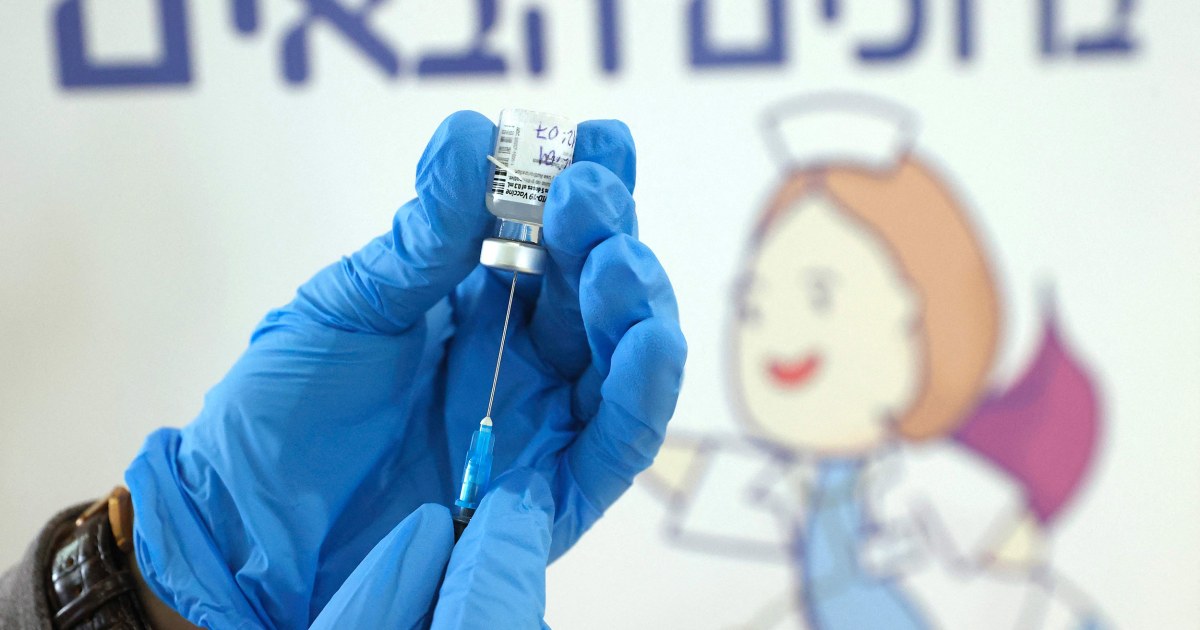TEL AVIV – Israel suspended a controversial plan to use coronavirus vaccines to win allies abroad before giving them to most Palestinians after the initiative was hit by legal challenges.
Half of Israeli citizens have already received at least one dose of vaccination, the country’s health minister said on Friday, the highest number in the world.
With his country beginning to look to a future beyond the restrictions of Covid-19, Prime Minister Benjamin Netanyahu ordered that tens of thousands of vaccines be sent to countries in Africa, Europe and Latin America as a diplomatic gesture.
The plan illustrates how vaccines have become a valuable bargaining chip at the international negotiating table. But it drew widespread condemnation, as Palestinians were forced to wait for vaccines.
There was also fierce criticism from opponents within Netanyahu’s fragile coalition government.
Benny Gantz, Israel’s defense minister, accused the prime minister of acting “behind the back” of his office and making the decision without consulting them.
On Thursday, Israel’s attorney general announced a review of whether Netanyahu has the legal authority to make the decision on his own. “The attorney general is examining the claim that vaccines were transferred to foreign countries without authorization,” said a spokesman.
The government then decided to “freeze any action” on vaccine shipments, the spokesman added.
Gantz welcomed the freeze.
“Netanyahu’s move was made in a non-democratic way, bypassing the procedures. If there is a reason to transfer vaccines to different countries at the expense of Israeli citizens – it will be decided only in the appropriate forums, ”he said.
Netanyahu told Israel Hayom on Friday that he talked to 30 countries about dose sharing and that he made sure the gifts would not affect Israelis’ vaccinations.
“Everyone wants to know how we did this miracle and everyone wants to participate, whether with knowledge or with assistance,” he said.
Israel did not disclose which countries would receive the vaccines, but the Israeli media reported that Netanyahu originally planned to send up to 100,000 doses to more than a dozen nations – some of them already allies and other countries it is trying to court.
Lots of 5,000 doses have already arrived in Guatemala and Honduras. Both countries agreed to follow the example of former President Donald Trump and transfer their embassies in Israel from Tel Aviv to Jerusalem, a small but significant diplomatic victory for Netanyahu.
“Thank you to the people of Israel and to our friend Prime Minister Benjamin Netanyahu for donating 5,000 vaccines!” Honduran President Juan Orlando Hernández said on Twitter at Thursday.
China, Russia and India have also engaged in so-called vaccine diplomacy, sending doses to friendly nations, sometimes prioritizing that over their own people.
But while Israel sent doses to the other side of the world, the vast majority of Palestinians are still waiting to be vaccinated.
Israel has only given 2,000 doses of the Modern vaccine to the Palestinian Authority so far, according to the latest figures, and has promised 3,000 more. Russia donated 10,000 doses of its Sputnik V vaccine to the Palestinians.
This leaves Palestinians far short of the amount they need to vaccinate the nearly 5 million people who live in the West Bank and Gaza.
The first available doses are being administered to Palestinian health professionals.
Riyad al-Malki, the Palestinian foreign minister, said it was “political blackmail and an immoral measure” for Israel to exchange vaccines in exchange for diplomatic favors.
This criticism echoed in the United States and other countries.
“It is outrageous that Netanyahu uses spare vaccines to reward his foreign allies while so many Palestinians in the occupied territories are still waiting.” sen. Bernie Sanders, I-Vt.,said earlier this week.
Israel argues that, according to the 1993 Oslo Agreement, Palestinians are responsible for ensuring their own vaccines. But United Nations officials and human rights groups say that, as an occupying power, Israel is required by the Geneva Conventions to provide them.
Israel is heading for the elections on March 23 and Netanyahu has made his treatment of the vaccine implantation, as well as his achievement on the world stage, a centerpiece of his re-election campaign.
Research shows that Netanyahu’s Likud party is on track to win more seats than any other party, but it is unclear whether it will be able to form a majority coalition government that can help it avoid the legal consequences of a trial corruption in progress.

